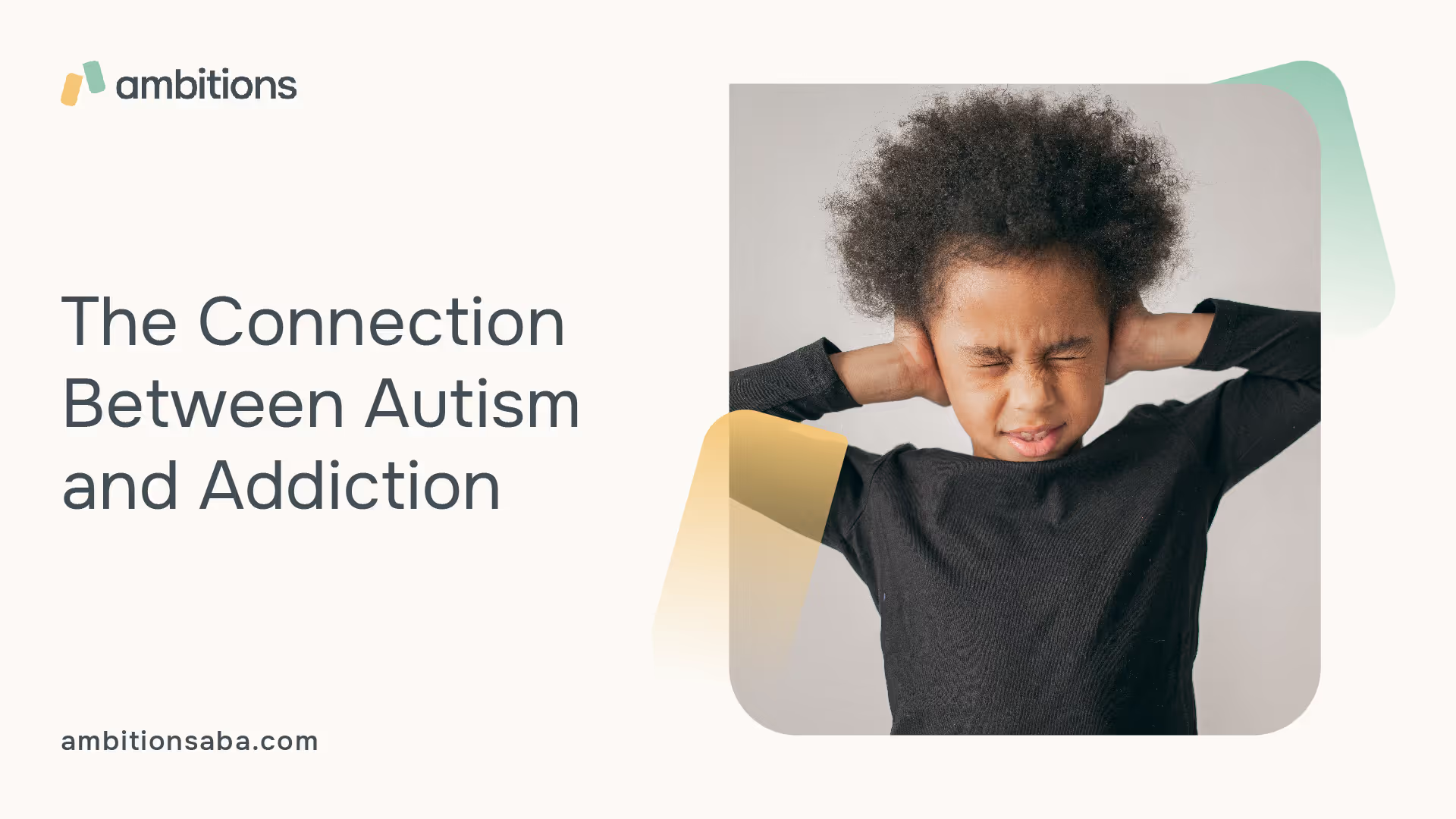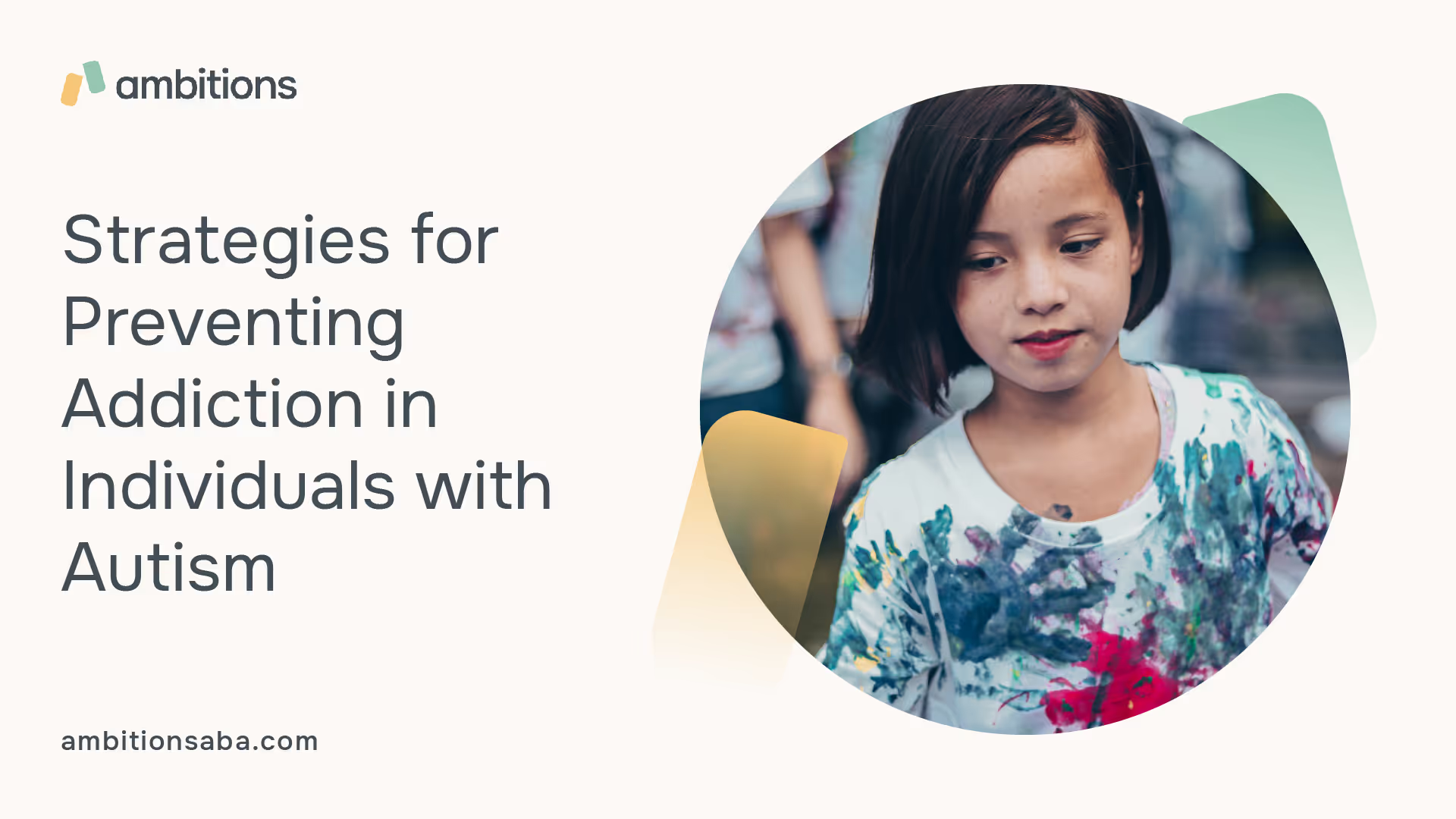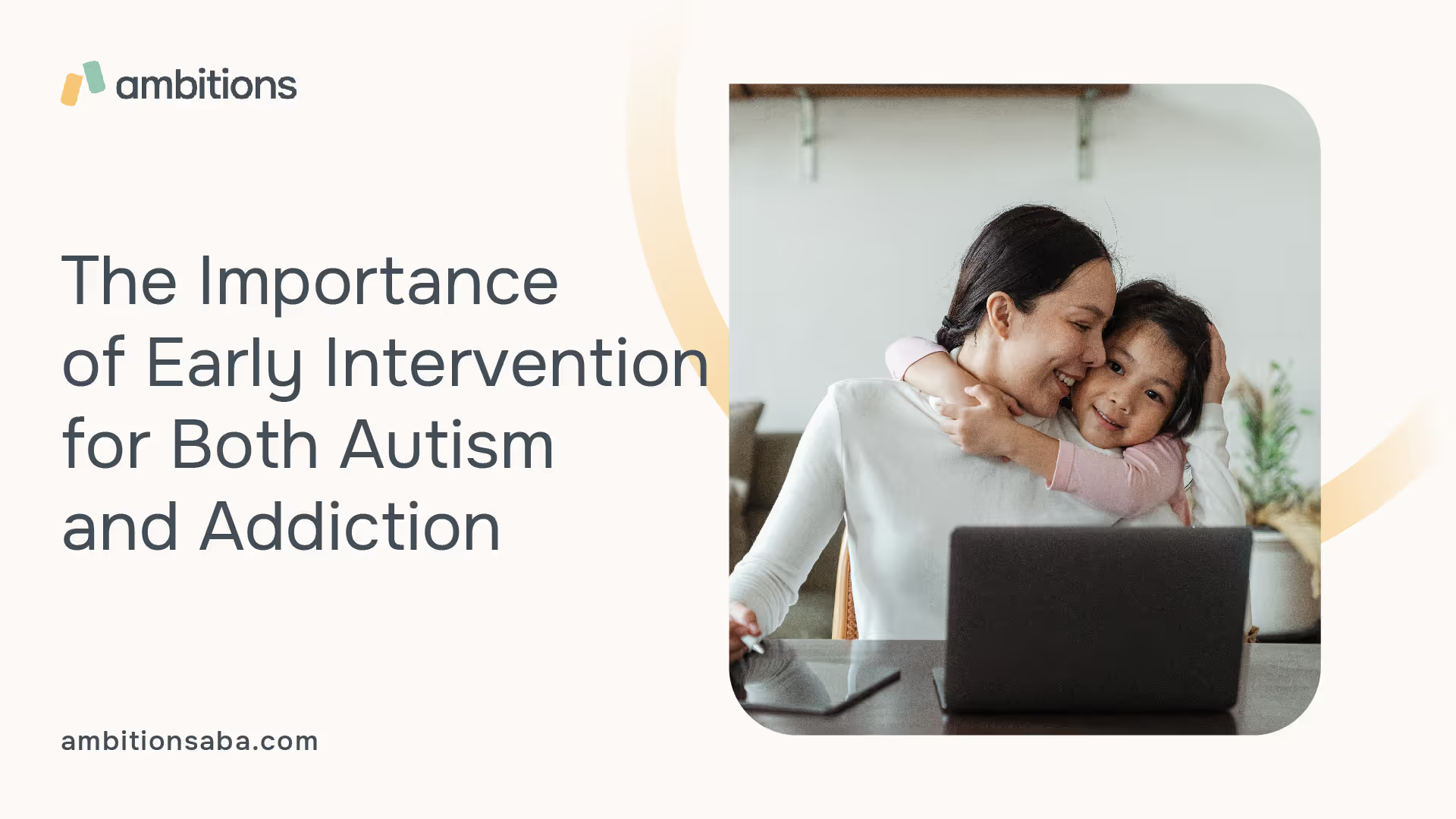How Autism and Addiction Are Connected

Autism and addiction are two complex conditions that can have a significant impact on a person's life. While they may seem unrelated, recent research has shown that there is a connection between the two.
Understanding Autism
Autism, also known as Autism Spectrum Disorder (ASD), is a developmental disorder that affects communication, social interaction, and behavior. It is a spectrum disorder, which means that it affects individuals differently and to varying degrees.
Some people with autism may have difficulty with verbal and nonverbal communication, while others may have repetitive behaviors or intense interests in specific topics.
Understanding Addiction
Addiction is a chronic disease that affects the brain's reward system. It is characterized by compulsive drug seeking and use despite the harmful consequences. Addiction can be caused by a variety of factors, including genetics, environment, and mental health conditions.
The Connection Between Autism and Addiction
Research has shown that individuals with autism are more likely to develop addiction than the general population. One study found that individuals with autism were three times more likely to develop addiction than those without autism. There are several reasons for this connection.
Sensory Processing Issues
Individuals with autism often have sensory processing issues, which can make them more sensitive to certain stimuli. This can lead to increased anxiety and stress, which can make them more likely to turn to drugs or alcohol to cope.
Social Isolation
Individuals with autism may have difficulty with social interaction, which can lead to social isolation. This can increase the risk of addiction, as individuals may turn to drugs or alcohol as a way to cope with their loneliness.
Impulsivity
Some individuals with autism may struggle with impulse control, which can make them more likely to engage in risky behaviors, including drug use.
Treating Addiction in Individuals with Autism
Treating addiction in individuals with autism can be challenging, as it requires a specialized approach. Traditional addiction treatment methods may not be effective for individuals with autism, as they may have difficulty with communication and social interaction.
One approach that has shown promise is behavioral therapy. This type of therapy focuses on changing behavior patterns and can be tailored to meet the specific needs of individuals with autism.
Another approach is medication-assisted treatment, which uses medications to help individuals manage their addiction.
The Role of Genetics in Autism and Addiction
Genetics also play a role in both autism and addiction. Studies have shown that there is a genetic component to autism, with certain genes being linked to the development of the disorder.
Similarly, addiction has been found to have a hereditary component, with individuals who have a family history of addiction being more likely to develop the condition.
Research has also suggested that there may be an overlap between the genetic factors that contribute to autism and addiction.
For example, some genes that are associated with autism have also been linked to addiction vulnerability.
Understanding the genetic component of both disorders can help healthcare providers develop more effective treatment plans for individuals with co-occurring autism and addiction. It can also help researchers identify potential new targets for medications or therapies aimed at treating these conditions.
It's important to note, however, that genetics are not the only factor involved in the development of either disorder. Environment and other external factors can also play a significant role. Therefore, a comprehensive approach is necessary when addressing these complex conditions.
The Impact of Addiction on Individuals with Autism and Their Families
Addiction can have a significant impact on individuals with autism and their families. For individuals with autism who are struggling with addiction, the combination of the two conditions can make it even more challenging to receive proper treatment and care.
Individuals with autism may have difficulty communicating their needs or expressing their emotions, which can make it harder for healthcare providers to identify addiction issues. Additionally, addiction can exacerbate existing sensory processing issues or repetitive behaviors associated with autism.
For families of individuals with autism, the added stress of managing addiction can be overwhelming.
They may struggle to find appropriate resources or support systems that understand the unique challenges associated with both conditions. This can lead to feelings of isolation, frustration, and hopelessness.
It's essential for healthcare providers to approach addiction treatment in individuals with autism in a holistic manner that considers both conditions' impact. This includes addressing any communication barriers or sensory processing issues that may impede effective treatment.
Families also need access to resources and support systems that recognize the challenges specific to caring for a loved one with both autism and addiction. This might include counseling services, peer support groups, or respite care options.
In conclusion, understanding the impact of addiction on individuals with autism and their families is crucial for providing effective treatment and support.
By taking a comprehensive approach that addresses both conditions' unique challenges, we can help improve outcomes for those living with these complex disorders.
Strategies for Preventing Addiction in Individuals with Autism

Preventing addiction in individuals with autism requires a specialized approach that takes into account the unique challenges associated with the disorder. Here are some strategies that can help reduce the risk of addiction:
Education and Awareness
Educating individuals with autism and their families about the risks of addiction is an essential first step in prevention. This includes providing information about the dangers of drugs and alcohol, as well as strategies for managing stress and anxiety without turning to substances.
Social Skills Training
Social skills training can help individuals with autism develop the skills they need to form healthy relationships and build social connections. This can reduce feelings of isolation and loneliness, which are risk factors for addiction.
Sensory Integration Therapy
Sensory integration therapy can help individuals with autism learn to manage sensory processing issues, reducing feelings of anxiety and stress that can lead to substance use.
Cognitive Behavioral Therapy (CBT)
CBT is a type of therapy that helps individuals identify negative thought patterns and replace them with more positive ones. It can be effective in preventing addiction by helping individuals develop coping mechanisms for managing stress and anxiety without turning to substances.
Medication Management
Individuals with autism may be prescribed medications to manage symptoms associated with the disorder, such as anxiety or depression.
Proper medication management is essential in preventing addiction, as some medications may have addictive properties or interact negatively with other substances.
By implementing these strategies, healthcare providers can help reduce the risk of addiction in individuals with autism. It's important to remember that prevention is key when it comes to addressing complex disorders like autism and addiction. By taking a proactive approach, we can improve outcomes for those living with these conditions.
Co-occurring Mental Health Conditions in Individuals with Autism and Addiction
Individuals with autism who are struggling with addiction may also have co-occurring mental health conditions. In fact, studies have shown that up to 70% of individuals with autism have at least one co-occurring mental health condition, such as anxiety or depression.
These co-occurring conditions can make it even more challenging to manage both autism and addiction effectively. For example, individuals with anxiety or depression may be more likely to turn to drugs or alcohol as a way to cope with their symptoms.
Additionally, some medications used to treat these conditions can interact negatively with substances, making it important for healthcare providers to carefully manage medication regimens.
It's essential for healthcare providers to screen for and address co-occurring mental health conditions when treating individuals with autism and addiction. This may involve specialized therapies or medications tailored to the individual's specific needs.
By taking a comprehensive approach that addresses all of the individual's unique challenges, healthcare providers can help improve outcomes for those living with these complex disorders.
The Importance of Early Intervention for Both Autism and Addiction

Early intervention is critical for both autism and addiction. For individuals with autism, early identification and treatment can help improve outcomes and reduce the risk of developing co-occurring conditions like addiction.
Research has shown that early intervention for autism can lead to significant improvements in communication skills, social interaction, and behavior. This can help individuals with autism better manage their symptoms and reduce the risk of developing addictive behaviors as a coping mechanism.
Similarly, early intervention is crucial for preventing addiction. The earlier someone receives treatment for addiction, the more likely they are to achieve long-term recovery.
This is because addiction can have a significant impact on the brain's reward system, which makes it more challenging to break free from addictive behaviors over time.
For individuals with co-occurring autism and addiction, early intervention is even more critical. These individuals face unique challenges that require a specialized approach to treatment. By identifying both conditions early on and providing tailored interventions that address all of their unique needs, healthcare providers can help improve outcomes and reduce the risk of complications.
It's important for healthcare providers to take a proactive approach when it comes to addressing these complex disorders. This includes screening for both autism and addiction regularly, especially in high-risk populations like those with a family history of either condition or those who have experienced trauma or other adverse childhood experiences.
By providing early intervention and ongoing support, we can help individuals with autism and/or addiction live healthy, fulfilling lives while reducing their risk of complications or negative outcomes associated with these conditions.
Community Resources Available for Individuals with Autism and Addiction
Individuals with autism and addiction often face unique challenges that require specialized support. Fortunately, there are several community resources available to help individuals and their families navigate these complex conditions.
Support Groups
Support groups can be an excellent resource for individuals with autism and addiction. These groups provide a safe, non-judgmental space where individuals can share their experiences and receive emotional support from others who understand what they're going through.
Some support groups are specifically designed for individuals with co-occurring autism and addiction, while others may focus on addiction or mental health more broadly.
Counseling Services
Counseling services can also be helpful for individuals with autism and addiction. A trained therapist can work with the individual to develop coping mechanisms for managing stress, anxiety, or other triggers associated with the disorders.
Additionally, therapy can help address any underlying mental health conditions that may be contributing to the addiction.
Vocational Training
Vocational training programs can help individuals with autism develop job skills and find meaningful employment. This can be especially important for individuals who may struggle with traditional educational settings due to communication or social interaction issues associated with the disorder.
Respite Care
Respite care programs provide temporary relief to caregivers of individuals with autism and addiction. This can be especially helpful for families who may feel overwhelmed by the demands of caring for a loved one with complex needs.
Community Centers
Community centers often offer a range of services and resources that can benefit individuals with autism and addiction. For example, some community centers host recreational activities or social events designed specifically for individuals on the autism spectrum. Others may offer substance abuse prevention programming or other educational resources.
By accessing these community resources, individuals with autism and addiction can receive the support they need to manage their conditions effectively. It's essential for healthcare providers to connect patients and their families with these resources early on in treatment to ensure that they have access to all available supports as they work towards recovery.
Frequently Asked Questions
Can autism cause addiction?
Research has shown that individuals with autism are more likely to develop addiction than the general population. However, autism itself does not directly cause addiction. Rather, it is the combination of factors such as sensory processing issues, social isolation, and impulsivity associated with autism that can increase the risk of developing addictive behaviors.
Can addiction be cured in individuals with autism?
While there is no cure for addiction, it can be effectively managed with proper treatment and support. This includes tailored interventions that address both the individual's unique challenges associated with autism and addiction.
What types of medications are used to treat addiction in individuals with autism?
Medication-assisted treatment (MAT) can be effective in managing addiction in individuals with autism. MAT involves using medications to help manage withdrawal symptoms and cravings associated with substance use disorders. The specific type of medication used will depend on the individual's needs and medical history.
Are there any alternative therapies that can be helpful for treating both autism and addiction?
Yes, there are several alternative therapies that may be beneficial for treating both conditions simultaneously. These include mindfulness-based therapies, equine therapy, art therapy, music therapy, and yoga therapy.
Can early intervention prevent both autism and addiction from developing?
Early intervention can help improve outcomes for individuals with both conditions by reducing the risk of complications or negative outcomes associated with them. However, it cannot necessarily prevent these conditions from developing entirely as they are complex disorders influenced by a variety of genetic and environmental factors.
How can families support their loved ones who have co-occurring autism and addiction?
Families play a critical role in supporting their loved ones who have co-occurring autism and addiction. This includes providing emotional support through regular communication, helping their loved one access appropriate treatment resources, advocating for their needs within healthcare settings or other community programs/services.
Is it possible to fully recover from both autism and addiction?
While there is no cure for either condition, recovery is possible through effective management strategies such as specialized therapies or medications tailored to an individual's specific needs. With proper treatment and support systems in place – including ongoing counseling services or peer support groups – many individuals living with these complex disorders go on to lead healthy fulfilling lives despite their challenges.
Conclusion
In conclusion, autism and addiction are two complex conditions that are connected in several ways. Individuals with autism are more likely to develop addiction than the general population, and treating addiction in individuals with autism requires a specialized approach. By understanding the connection between autism and addiction, we can better support individuals who are affected by these conditions.



